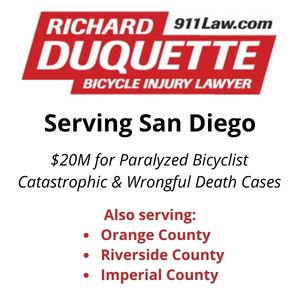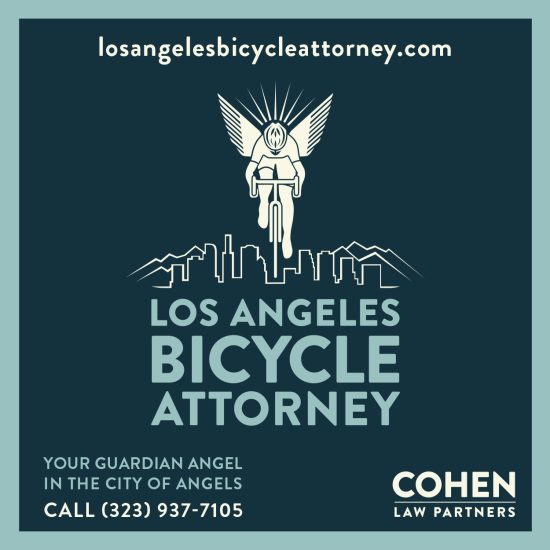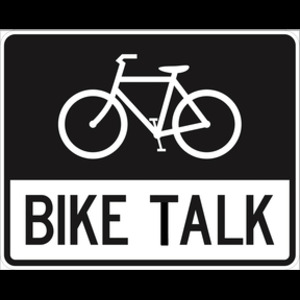
No surprise here.
A new study by personal finance site MoneyGeek, straying just a tad outside their lane, confirms what we already knew.
The most dangerous intersections in Los Angeles are in South LA.
LA’s Vision Zero High-Injury Network has already revealed that many of the city’s deadliest corridors were located in South LA.
Now, after examining nearly 14,000 collision reports from 2020 to 2022, MoneyGeek has counted 86 Los Angeles intersections which have had ten or more deaths or serious injuries over the three-year period.
Four of the top five were in South LA — including three on deadly Manchester Blvd.
- S. Vermont Avenue and W. Florence Avenue (19 injury crashes)
- W. Manchester Avenue and S. Normandie Avenue (18 injury crashes)
- Victory Boulevard and Lindley Avenue (18 injury crashes)
- W. Manchester Avenue and S. Vermont Avenue (18 injury crashes)
- E. Manchester Avenue and Avalon Boulevard (18 injury crashes)

Map courtesy of MoneyGeek
The company also crunched the numbers on the city’s most dangerous neighborhoods, with DTLA coming out on top with over twice the number of intersection crashes of any other neighborhood.


Just more evidence of the failure of LA’s vastly underfunded and unimplemented Vision Zero program, which has just two years left to meet its goal of ending traffic deaths by 2025.
Which seems pretty damn unlikely, given last year’s record fatality count.
………
Bicycling’s Joe Lindsey examines the tech industry’s insistence on beta testing of self-driving cars on American streets, using bike riders and pedestrians as unwitting guinea pigs. Or maybe crash test dummies.
Along with the lack of regulation that puts us all at risk.
An article of faith among proponents of autonomous vehicles is that the vast majority (94 percent is the figure often cited) of traffic crashes are caused by human error. Cyclists make up a relatively small portion of overall road deaths in the United States, but they’re killed at higher rates than vehicle occupants. Aside from a slight dip in 2020 when we drove less early in the pandemic, cyclist fatalities have risen for over a decade, and in 2021 the annual total jumped five percent to an all-time high of nearly 1,000, according to preliminary data from the National Highway Traffic Safety Administration (NHTSA).
He goes on to look at the death of Elaine Hertzberg, who was walking her bike across a Phoenix street when she was run down by one of Waymo’s autonomous vehicles.
Although blame for the crash was put on the human operator, who was distracted watching videos on her phone, rather than the road ahead.
Zoom out more, and the data tells a similar story. Uber’s ATG test fleet had driven more than two million autonomous miles before Herzberg’s death. Waymo claims that it has surpassed 20 million miles total. Altogether, autonomous vehicles in California drove more than four million miles in 2021. That’s tens of millions of miles driven over years of testing, with one death. That may sound impressive, but the most recent fatality statistic for human driving in the U.S. is 1.33 per 100 million vehicle miles traveled. Autonomy literally has a long drive before it can show that it can match, let alone exceed, human safety performance, even such as it is.
And outside of those sporadic data disclosures and California’s reporting system, there are few ways to monitor progress. Without federal regulation, there’s not even a widely accepted benchmark for how safe autonomous vehicles should be to use as a target. “I understand there’s a balance between innovation and regulation, but right now that oversight isn’t happening,” says Homendy, herself a cyclist. “It’s disappointing.”
One point in favor of autonomous vehicles, though, is the complete and total lack of road raging drivers.
So at least if one of those runs you down, you’ll know they probably weren’t aiming for you.
As usual, read it on Yahoo if the magazine blocks you.
………
The war on cars may be a myth, but the war on bikes just keeps on going.
This is why people keep dying on the streets. A British driver walked without a single day behind bars for chasing a 16-year old boy with her car, then intentionally knocking him off his bike, all because one of the boy’s friends accidentally clipped the wing mirror on her car.
A driver on the island of Jersey is demanding that charges against her for crashing into a teenage bike rider be dropped, arguing that it will be impossible to get a fair trial because prosecutors failed to turn over evidence in a timely manner.
But sometimes, it’s the people on two wheels behaving badly.
A British teenager could face charges for assaulting a cop who tried to stop him, after leading police on a high speed bicycle chase through the streets of town.
………
Local
Metro offers an update on Measure M projects, including closing the gaps in the LA River bike path in the Central Cities and San Fernando Valley.
Readers of the Los Angeles Times agree that LA drivers are getting worse, though one letter writer blames the paper for encouraging less enforcement of minor infractions.
State
Volunteers look back on five years of maintaining the La Jolla Bike Path. Which the city should do but doesn’t.
Builders in rural San Diego County could soon be required to fund bike lanes, sidewalks and transit as a condition for permitting.
An op-ed from a member of Fresno’s Bicycle Pedestrian Advisory Committee argues that the city can reduce bicycling and pedestrian deaths, and Vision Zero is the way to do it.
Oakland’s Slow Streets program is making a comeback, after it was ended last year for a lack of funds.
Napa will get its first buffered bike lane later this year.
National
Amazon’s Woot outlet site is offering a one-day discount on mostly low-end ebikes, although there are a few midrange Schwinns in there, too.
PinkBike considers the relative benefits of buying your next bike from a bike shop versus buying online.
Forbes recommends what they consider essential gear for bike commuting, all of which would be helpful, and none actually essential. The only thing you really need to bike to work is a bike.
Seattle’s “top-to-bottom” review of the city’s Vision Zero program received a lukewarm reception, as some advocates argued it lacks ambition and is short on details on how to actually fulfill the program’s mission to end traffic deaths.
A bill in the New Mexico legislature would require cities to consider adding space for bike riders when reworking roadways, and includes $5 million in funding for protected bike lanes. Wake me when they require bikeways, rather than just considering it.
They get it. The Dallas Morning News calls for adopting the Idaho Stop Law in Texas, arguing that it would improve safety for bike riders, as well as drivers.
Texas is nearing completion of a 130-mile bike and pedestrian trail through the northeast section of the state, taking bicyclists within a short ride or a long walk of the Arkansas border.
Singletracks talks with an Arkansas man who uses his mountain bike to conduct outreach to homeless youths.
Christian singer Amy Grant says she leaned into her faith after suffering a significant traumatic brain injury going over her handlebars in a Nashville crash last year.
A Harvard Fulbright scholar sings the praises of foldies following his move to London.
A Saratoga, New York man describes surviving last weekend’s horrific Goodyear, Arizona crash that took the life of his friend; he avoided the crash by just feet as he attempted to reach the lead group.
New York is examining ways to bring peace to the drives in the city’s Central Park, as pedestrians, biker riders, runners and horse carriages compete for space.
The Philadelphia Inquirer says bikeshare ebikes are gaining popularity in Philadelphia’s low income communities of color, saying they’re not just for white guys in Lycra anymore.
Baton Rouge, Louisiana is planning to add 65 miles of bike paths in the coming years, committing to include a bike path with every new roadway project. More proof that places where I’ve lived only get better after I leave.
Tampa, Florida will offer 180 vouchers good for up to two grand off the price of an ebike, with eligible recipients selected through a lottery.
International
A writer for the Prince George Post questions whether traffic fines in British Columbia should be tied to the driver’s income, suggesting that a European-style progressive punishment program could be fairer and more effective.
National Geographic recommends eight European cities to discover by bicycle, starting with Stockholm and ending in Helsinki.
The CEO of British foldie maker Brompton says the company is fighting a war of attrition against copycat rivals that mimic its designs.
Vice examines how Dutch bikemaker VanMoof made ebikes cool. Except a) not everyone thinks ebikes are cool, and b) VanMoof is just one of literally hundreds of ebike makers with varying degrees of coolness.
Competitive Cycling
The new Denver Disruptors cycling team participating in the newly formed National Cycling League will make their professional debut in Tucson this weekend.
Netflix has dropped the trailer for its upcoming series focused on the Tour de France. Read this one on Aol if Bicycling blocks you.
Hello world! As one our first acts, here's the trailer for the Netflix Tour de France series. We found it in a bin out back.
It's excellent!
Please sign up if you want to find out what else is in our bins. https://t.co/yDnlPJxW88 pic.twitter.com/h74YZC1sxD
— Escape Collective (@EscapeCycling) February 28, 2023
Finally…
Professor by day, cargo bike momma by night. And your next cargo bike could have room for five.
………
Be safe, and stay healthy. And get vaccinated, already.
Oh, and fuck Putin, too.






It was not Waymo’s car that killed Hertzberg; it was Uber which your quote even mentions.